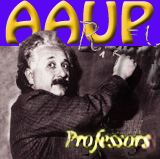 By Daron Anderson
By Daron Anderson
February 18, 2011
…….Janelle Taylor, a UW faculty senator who is also president of AAUP’s UW chapter, became concerned about the adjudication process after assistant research professor Andrew Aprikyan was terminated for scientific misconduct last year. Former President Mark Emmert ruled the adjudication panel’s findings were invalid and upheld the opinion of the dean who charged the professor.
“[Emmert] basically said to the faculty adjudication hearing panel that, ‘Your role is to decide what the punishments are, but the dean has already determined that he was guilty,’” Taylor said.
The code says that whenever a faculty member is charged and doesn’t consent to punishment, a Faculty Senate adjudication board can be assembled to make a judgment on whether misconduct occurred.
“Shared governance is based on the idea that the faculty have a special responsibility to the profession and to the university to make sure that academic matters are handled in the right way,” she said.
“I wrote to the AAUP national staff because I thought that if they saw that this was an important problem here, they could speak to it with real authority,” she said.
Gregory Scholtz, AAUP’s director of Academic Freedom, Tenure and Governance, responded, writing that he believes the relationship between the UW Handbook and Faculty Code is consistent with AAUP principles. However, Scholtz also said Emmert’s statements were not in line with AAUP or UW principles.
Scholtz wrote that the administration’s position in this case “is at odds with a fundamental tenet of academic due process as enunciated in the joint 1940 Statement of Principles on Academic Freedom and Tenure … 1958 Statement on Procedural Standards in Faculty Dismissal Proceedings … and derivative AAUP interpretations.”
In the letter, Scholtz also addressed Emmert’s written final decision regarding Aprikyan when the former president ruled that the case’s hearing panel members “were without the requisite expertise” to judge on the matter because they were not a part of Aprikyan’s field.
“If this were indeed the case, many — if not most — faculty hearing committees would be precluded from performing their necessary responsibilities in faculty dismissal proceedings,” Scholtz wrote.
In reference to the 1940 statement, Scholtz said it would be best to have faculty from a variety of departments.
“The 1940 Statement … addresses the question … by recommending that ‘[i]n the hearing of charges of incompetence the testimony should include that of teachers and other scholars, either from the teacher’s own or from other institutions,’ thus providing for expert testimony on the particular matter at issue,” he said.
…Interim President Phyllis Wise said she is confident in the UW administration’s future decisions.“We have followed the code and look at the code all the time when we make judgments,” she said. “I can’t say that we would not [in the future].”
Reach reporter Daron Anderson at [email protected].